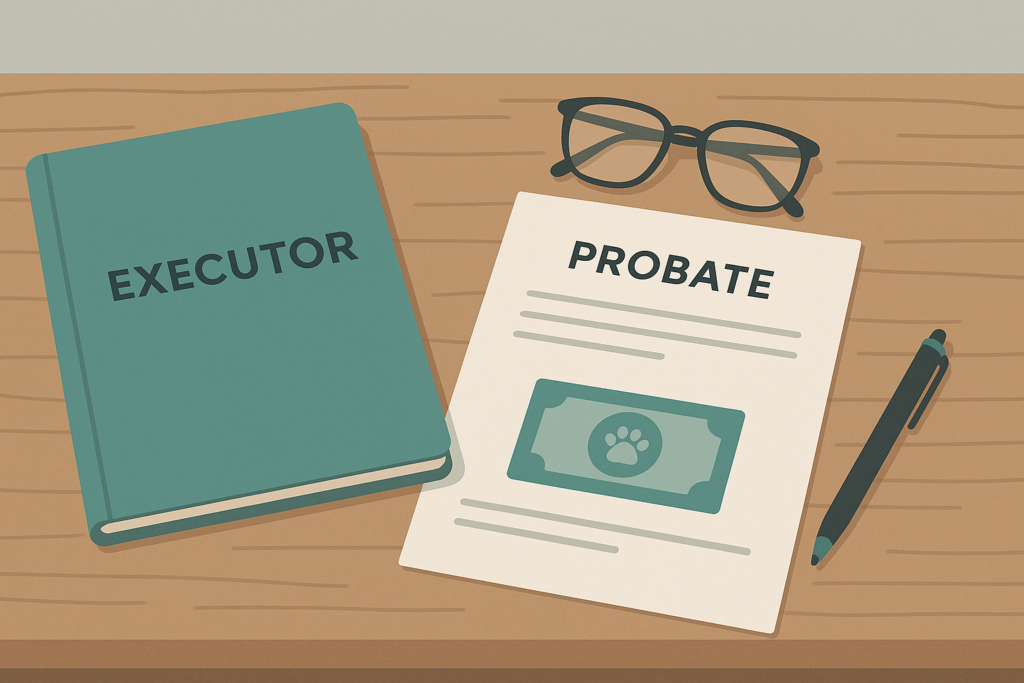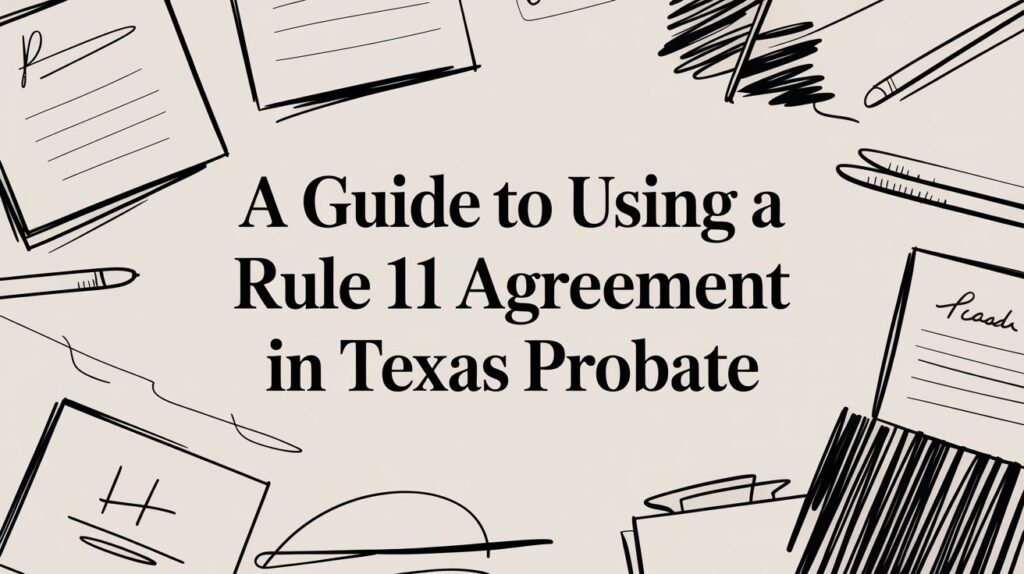In today’s world, wealth is no longer limited to houses, cars, or traditional bank accounts. Digital currencies, such as Bitcoin and Ethereum, and other cryptocurrencies are now integral to the financial landscape. They’re valuable, portable, and—unlike physical assets—exist entirely online. But what happens to that digital fortune when someone dies? Especially in Texas, where probate laws were designed long before cryptocurrency ever existed.
This question isn’t just theoretical. Every year, families and executors in Texas discover that a loved one’s estate includes digital assets. Sometimes it’s a few coins. Other times, it’s a small fortune. Either way, handling cryptocurrency during probate presents unique legal and practical challenges.
In this article, we’ll explore how Texas probate courts treat digital currencies after death, what heirs and executors should know, and the steps people can take to prevent their Bitcoin from becoming permanently inaccessible.
Understanding Digital Currency as Property in Texas

Under Texas law, assets are categorized into two primary types: tangible property and intangible property. Tangible property includes physical things like vehicles, real estate, and personal items. Intangible property includes things like stocks, bonds, intellectual property, and now, digital currencies.
Bitcoin and similar digital currencies are treated as personal property under Texas probate law. In other words, they’re assets that can be inherited, transferred, and distributed. This may sound simple. But the digital nature of cryptocurrency creates complications that traditional assets don’t.
A house is easy to locate. A savings account can be tracked through financial institutions. But Bitcoin can be stored in countless ways: hot wallets, cold wallets, exchanges, hardware devices, even memorized seed phrases. Without access to those digital keys, cryptocurrency is effectively lost forever.
This raises a stark reality. In Texas probate cases, digital assets may exist, yet remain out of reach. If no one knows how to access them—or even that they exist—they’re as good as gone.
Why Digital Currency Creates Unique Probate Problems
When someone dies owning cryptocurrency, identifying and accessing those digital funds can become one of the trickiest parts of settling the estate. Here’s why:
Cryptocurrency Is Private By Design
Unlike bank accounts, crypto holdings are not tied to a person’s name or social security number. Blockchain technology is built for privacy. Wallet addresses are strings of characters, not linked to identity. Unless the deceased told someone about their digital assets—or left clear instructions—family members may not even know they exist.
Access Requires Knowledge of Private Keys

Ownership of cryptocurrency depends entirely on one thing: control of the private keys or recovery phrases that unlock the digital wallet. Courts can’t issue an order to Bitcoin itself to unlock funds. Without the keys, even the probate judge can’t help.
This means that heirs or executors must either have direct access to the keys or rely on someone who does. Losing those keys means losing the digital currency permanently.
Standard Probate Processes Don’t Address Digital Wallets
Texas probate procedures were created with physical and traditional financial assets in mind. There’s no automatic protocol for discovering or managing digital wallets. Executors may not know to look for them. And even when they do, they might lack the technical knowledge to manage or transfer cryptocurrency properly.
All of this means digital assets are often mishandled—or entirely missed—in probate cases.
What Happens to Bitcoin in Texas Probate?
If digital assets are discovered during probate, they’re treated like any other personal property. But getting to that stage isn’t always easy. Here’s how the process generally works:
Discovery of Digital Assets
First, someone must identify that digital currency exists. This might happen if:
- The deceased left a will mentioning cryptocurrency.
- Family members find a hardware wallet, a digital exchange account, or written instructions.
- Password managers or cloud storage reveal wallet backups or account details.

If no clues are left behind, the cryptocurrency might never be found.
Valuation of Cryptocurrency
Once discovered, digital currency must be valued as part of the estate inventory. Texas probate courts require an executor to list all assets and their fair market value. Because crypto prices fluctuate rapidly, valuation is typically based on the coin’s worth on the date of death.
Transferring or Liquidating the Digital Currency
Assuming access exists, the executor has two main options. They can transfer the cryptocurrency directly to beneficiaries or liquidate it and distribute the cash equivalent. This depends on the terms of the will (if any), the estate’s financial needs, and the beneficiaries’ preferences.
Because handling crypto requires technical skill, executors often hire digital asset specialists to assist with transfers. Mistakes—like sending coins to the wrong address—can result in irreversible loss.
Dying Without a Will: What Happens to Crypto?
When someone dies intestate (without a will) in Texas, state law dictates how their property is divided. Digital assets are no exception. Bitcoin, Ethereum, and other cryptocurrencies become part of the general estate and are distributed according to Texas intestacy laws.
The challenge, again, is access. If no one can unlock the digital wallets, the rightful heirs may never receive those assets. The law can recognize their right to inherit, but the blockchain won’t recognize a court order.

This makes estate planning essential for anyone holding significant cryptocurrency in Texas.
How Texas Law Addresses Digital Assets in Estate Planning
In 2017, Texas adopted the Revised Uniform Fiduciary Access to Digital Assets Act (RUFADAA). This law gives executors and trustees limited rights to access certain digital assets, like online accounts and cloud storage, upon a person’s death. However, RUFADAA doesn’t automatically grant access to cryptocurrency wallets. That’s because access requires specific knowledge—private keys, passwords, and seed phrases—that legal authority alone cannot provide.
To avoid problems, Texans who own digital currency should:
- List all cryptocurrency holdings in their estate planning documents.
- Provide secure access instructions, either through a trusted person, attorney, or encrypted storage.
- Consider using digital asset management services that allow for transfer upon death.
Without these proactive steps, even the best-written will not be able to retrieve lost Bitcoin.
Security vs. Accessibility: A Delicate Balance
One of the reasons digital assets are often lost in probate is security. Cryptocurrency investors are taught to keep private keys secret at all costs. Sharing them can lead to theft. Writing them down can lead to loss.
But if no one else knows how to access your wallets, your crypto could die with you.
Balancing security and accessibility is a challenge. Some choose to store keys with an attorney or include them in sealed estate documents. Others use password managers or multi-signature wallets to create backup access. The method matters less than the outcome: making sure someone you trust can access your digital wealth when the time comes.
What Executors Should Do When Digital Assets Are Suspected
If you’re an executor in Texas handling an estate and suspect digital assets might exist, there are practical steps to take:
- Search for hardware wallets, paper wallets, and digital devices.
- Review password managers, cloud storage, and digital files for wallet backups.
- Look for exchange accounts through email records or bank statements.
- Consult a digital asset specialist for technical assistance.
If digital assets are confirmed, treat them like any valuable property. Keep records. Ensure secure storage. And follow court procedures for inventory and distribution.
Planning Ahead: Keeping Your Crypto from Getting Lost
The most common reason Bitcoin and other digital currencies vanish during probate is simple: lack of planning. Crypto holders in Texas should take proactive steps to protect their digital wealth for their heirs.
This means including cryptocurrency in your will, leaving clear access instructions, and educating your executor or beneficiaries about your holdings. Even a basic note indicating “I have crypto stored in X wallet” can make the difference between inheritance and permanent loss.
Professional estate planning with a digital asset-savvy attorney is the safest approach. They can help structure your documents for security and legal compliance, ensuring your heirs receive what you’ve worked to accumulate.
Conclusion: Probate Courts Can’t Unlock Bitcoin
In Texas, probate courts can distribute property. They can resolve disputes. They can issue orders. But they can’t hack a blockchain. Cryptocurrency lives outside traditional legal systems. If your Bitcoin can’t be accessed, it can’t be inherited. No judge, executor, or family member can retrieve it. That’s why estate planning for digital assets is no longer optional. It’s essential.
For Texas families, understanding how probate interacts with digital currency is key. Whether you’re a cryptocurrency investor or an executor facing the complexities of a modern estate, knowledge and preparation are your best protection. Because in the world of Bitcoin, once it’s lost, it’s gone forever.








